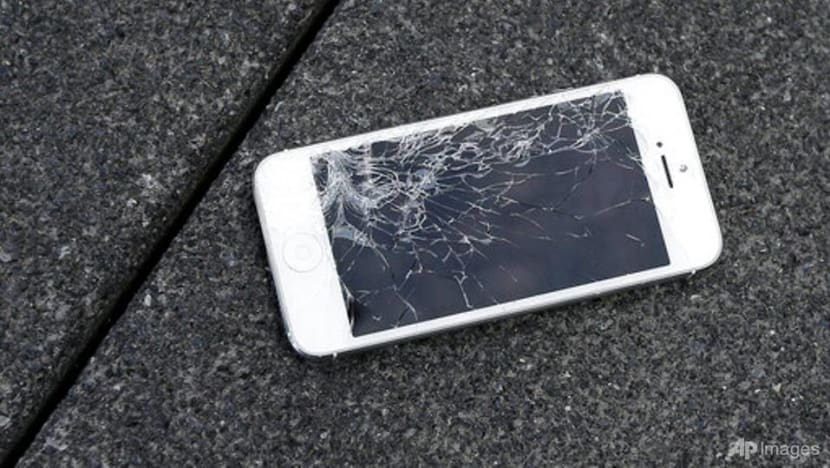Why consumers are fighting tech for ‘right to repair’

Some of us are old enough to remember the days when you could easily swap out a dud battery in your flip phone. Nowadays, repairing virtually any electronic device - from a smartphone to a gaming console, microwave oven or fan - can cost more than buying a new one.
Manufacturers make it hard for technicians to get inside their products, source parts, or update software. So devices are just thrown away, generating potentially hazardous waste and forcing consumers to buy new items whose production further taxes the environment.
The industry has long resisted calls from campaign groups for a “right to repair” gadgets. However, the pressure appears to be paying off for some consumers after Apple said it will begin making parts and tools available for users to fix their phones.
WHAT'S BEHIND THE RIGHT TO REPAIR MOVEMENT?
Since the first electronic goods emerged in the 1950s, buyers have sought to keep them going by repairing or replacing broken parts. Today, it’s clear that many products are designed to be unfixable.
Manufacturers use non-standard screws, seal devices with glue or solder parts together unnecessarily, making it virtually impossible to replace individual components. The growing complexity of gadgets means technicians need dedicated manuals and tools that are hard to access or unavailable to the public.
Some manufacturers use software to ensure only their own parts work. They’ve even been accused of updating software in products to deliberately impair performance with age. Apple, which says it engineers “each software release to make sure it runs beautifully on all supported devices”, nevertheless has been a particular focus of grievance.
WHAT ARE THE COMPLAINTS ABOUT APPLE?
Most smartphones have unique components, so the only way to get spare parts is via their maker. Apple, like other tech firms, doesn’t usually share spares with repair shops it hasn’t approved. Critics say this has kept the cost of fixing its products artificially high.
When other workshops do switch out batteries or screens, users are plagued by glitches and error messages. Apple says unverified parts can lead to poor performance and serious safety issues.
But the tech giant has made some concessions in recent years. In 2019, it launched a program allowing third parties to fix devices no longer under warranty, and began training more than 265,000 repair technicians. Then in November, it announced plans to supply spares so that iPhone 12 and iPhone 13 owners can fix their display, battery and camera.
Right-to-repair campaigners say they’re waiting to see the price of the new parts, as cost is still the main reason why many users opt to replace their phones instead of mending them.
WHAT'S AT STAKE?
Discarded electronic goods generated an estimated 53.6 million tonnes of waste in 2019, and only 17 per cent of that was properly recycled.
This trash contains heavy metals and compounds including arsenic, lead, mercury and cadmium, which if not disposed of appropriately can expose communities to the risk of cancer, birth defects and mutations.
Moreover, the production and shipment of new devices to replace unfixable ones, not to mention the mining of the necessary raw materials, burns energy, often resulting in the emission of greenhouse gases responsible for global warming.
Researchers estimated in a 2017 study that the production of a smartphone, for example, emits from 40 to 80kg of carbon dioxide equivalent, about the same as driving the typical passenger car as many as 320km.
As more people around the world purchase cellphones and other electronic devices, emissions from their production multiply. The authors of the 2017 study noted that in the previous 50 years, consumption of electronic devices grew sixfold though the world’s population only doubled.
HOW ARE TECH COMPANIES RESISTING THE RIGHT TO REPAIR?
Companies including Apple, Google, Microsoft and Tesla have spent heavily on lobbyists to make a case that right-to-repair laws would expose industry secrets, give third parties access to sensitive information, and put the safety and security of consumers at risk.
When Apple representatives fought a right to repair Bill in Nebraska in 2017, they told lawmakers it would turn the state into a “mecca” for hackers. Critics say the industry opposes a free market in repairs because it would lower prices for this work and encourage more people to get their gadgets fixed, hammering sales of new ones.
WHAT ARE GOVERNMENTS DOING?
Laws enacted in the European Union and the UK are forcing makers of washing machines, dishwashers, refrigerators and TVs to ensure parts are replaceable with common tools that consumers can use easily.
The EU is looking into regulating mobile phones, tablets and computers.
In France, manufacturers must provide a “repairability score” for some electronic devices. Apple, for instance, gave its iPhone 12 Pro Max, released in late 2020, a six on a scale of zero to 10.
In the US, President Joe Biden asked federal officials to introduce measures limiting manufacturers from barring self- or third-party repairs of their products. Several US states considered right-to-repair bills in 2021, but many were voted down or dismissed, according to consumer groups tracking the proposals.
ARE THE NEW MEASURES MAKING A DIFFERENCE?
It’s early days. In the UK, manufacturers have a two-year grace period to comply. The rules have limitations. Consumer rights advocates complain that they only benefit professional repairers as they don’t guarantee the right to repair for consumers and not-for-profit organisations.
Also, the current legislative push focuses on physical components, not software. Replacing a faulty part may be of no use if your device also needs a software update. The regulations also skirt around a practice among manufacturers of selling some parts only as a bundled group, which keeps repair costs high.
For example, a consumer looking to replace drum bearings in a washing machine may have to replace the whole drum, making the repair almost as expensive as a new machine.













